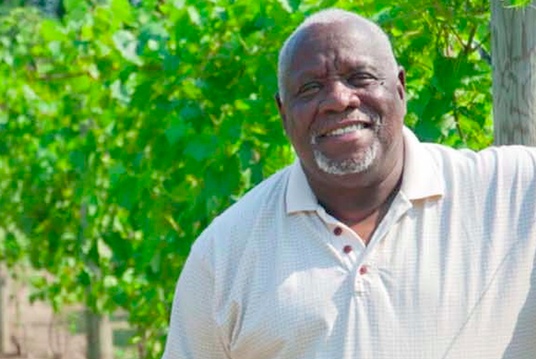National Public Radio is to be commended for airing The Race Card Project, a program that seeks to discuss one of America’s most pressing — yet least talked about — issues: Race. While others routinely complain about our lack of a national conversation on the subject, NPR is one of the few media outlets to unflinchingly face it head on.
The format is simple: Thousands of individuals have responded with their thoughts on race and cultural identity succinctly; the rule is to do so in only six words.
Marc Quarles is an African-American ultrasound technician who lives with his German wife and two biracial children — a son, 15, and daughter, 13 in Pacific Grove, a virtually all-white, affluent area on California’s Monterey Peninsula.
His six words were: “With kids I’m Dad. Alone, thug.”
His lament was that every summer, when his wife and children go to Germany to visit family, and he’s left alone in his community, he notices “my white counterparts almost avoid me. They seem afraid … they don’t know what to think of me because I’m in their neighborhood. I oftentimes wonder if they think I’m a thug. The same does not happen when I have the security blanket and shield of my children … when my children are with me, I’m just a dad.” Quarles related his story to NPR correspondent Michele Norris.
Quarles continued by adding, “There aren’t a whole lot of African-American males in Pacific Grove, so I think most people do wonder, ‘what is this … black guy up to? Why is he here, and what is he doing? And why is he in my nice, affluent neighborhood?’”
Blacks like Quarles never cease to amaze me. He has a 15-year-old biracial son who most likely goes to a school where he sticks out like a sore thumb, and teenagers the world over can be exceptionally brutal … especially towards the “other” … anyone who is in any way different. While such behavior might not manifest itself strongly before puberty, once the flirting and dating games begin, Quarles’ son could have a very rough time of it indeed at school. It’s almost a certainty.
It’s not as if Marc Quarles isn’t aware of the problems his son faces; the young man brings the subject up, only to be told by his dad that, because of his brown skin “there simply are things he cannot do.” Does that mean he can’t flirt with white girls because there are no black ones around for him to practice developing his social skills on? Just try to imagine how lonely — or difficult — his teenage years might very well be.
And for what, just so his dad can distance himself from people of his own color? What is that about? Living next door to whites, in virtually all-white communities to validate one’s own sense of self worth — to be able to boast “I’m the only black in my neighborhood” — went out of style among most wise and secure blacks years ago.
Don’t get me wrong: I’m all for housing integration … I just wish more white folks were of the same mind. Why does it rest exclusively on the shoulders of blacks to make this a reality in America? Does this all-too-common phenomenon of blacks being eager to live where they are not wanted, in some twisted way, validate whites’ sense of superiority?
When blacks willingly suffer myriad indignities of the kind Quarles gives voice to simply to live in communities where they are held suspect … and clearly not welcome … what does that say about their sense of racial pride?
The simple fact is, until more whites buy into the notion that integration is something that’s actually good for the country, it’s just not going to happen … at least not in most instances. If integration is so desirable, the door to it should swing both ways, both races should be responsible for making it happen.
The upside is, there are numerous stable, racially integrated communities across the country … communities where Quarles’ children would most likely be much happier since they would not be so racially isolated, and pay a bigger price than their parents for ideals they may or may not hold dear. Why this seemingly intelligent man doesn’t move into a racially welcoming community for the sake of his children’s happiness simply boggles my mind.
 From Cool Cleveland correspondent Mansfield B. Frazier mansfieldfATgmail.com. Frazier’s From Behind The Wall: Commentary on Crime, Punishment, Race and the Underclass by a Prison Inmate is available again in hardback. Snag your copy and have it signed by the author by visiting http://NeighborhoodSolutionsInc.com.
From Cool Cleveland correspondent Mansfield B. Frazier mansfieldfATgmail.com. Frazier’s From Behind The Wall: Commentary on Crime, Punishment, Race and the Underclass by a Prison Inmate is available again in hardback. Snag your copy and have it signed by the author by visiting http://NeighborhoodSolutionsInc.com.
